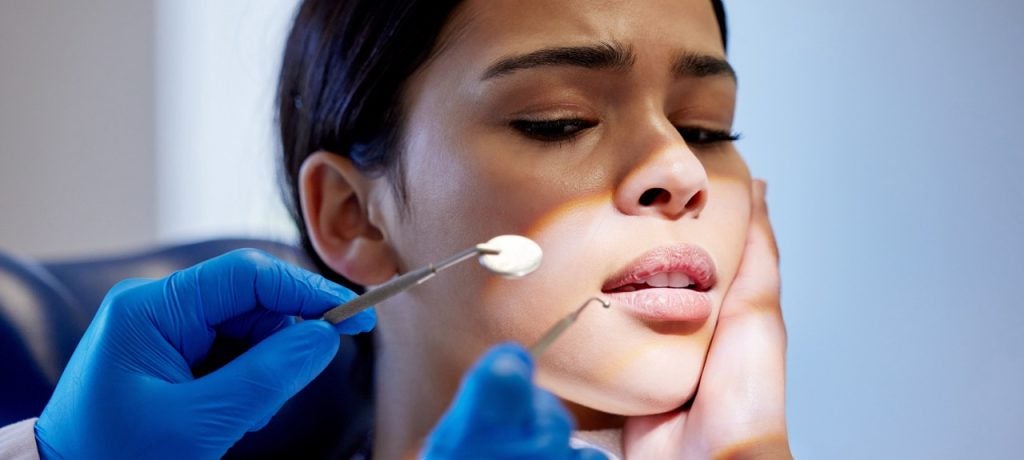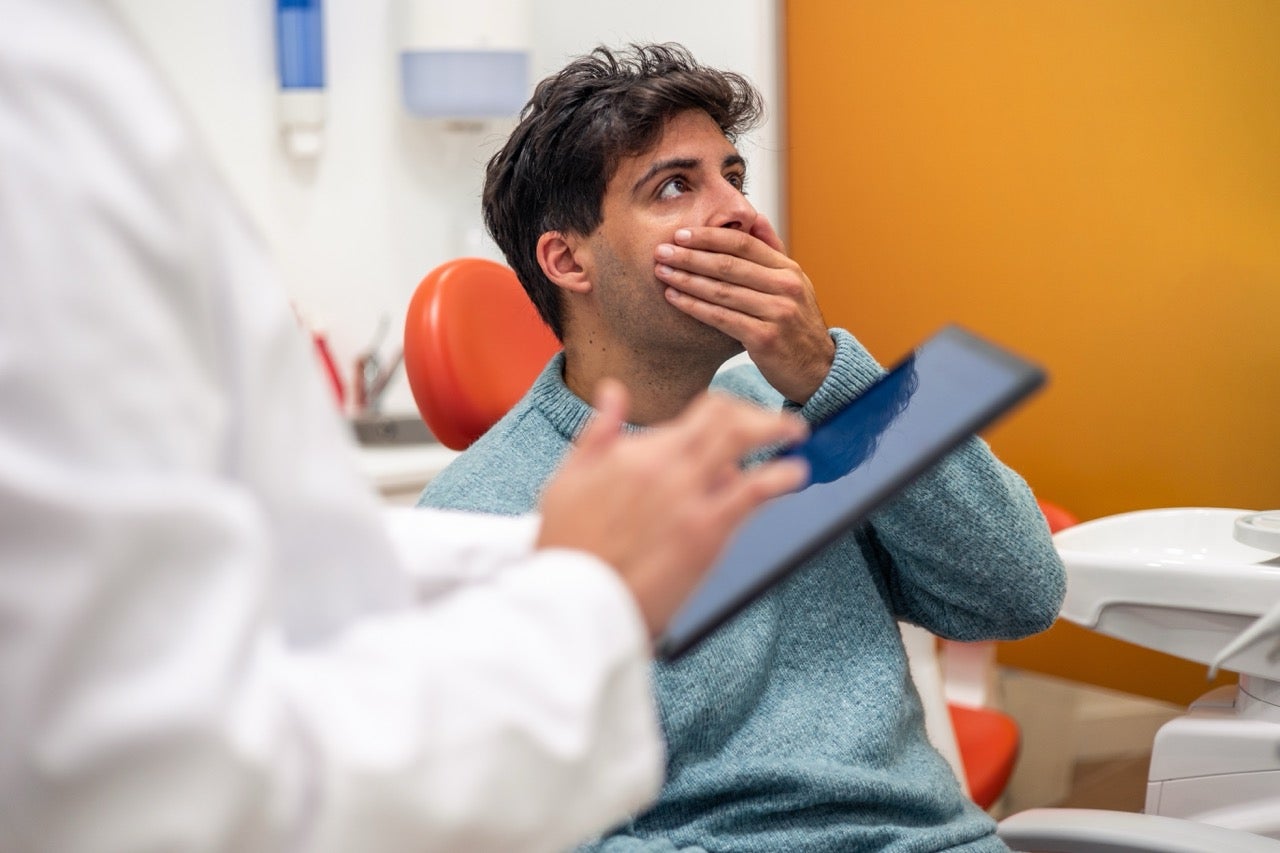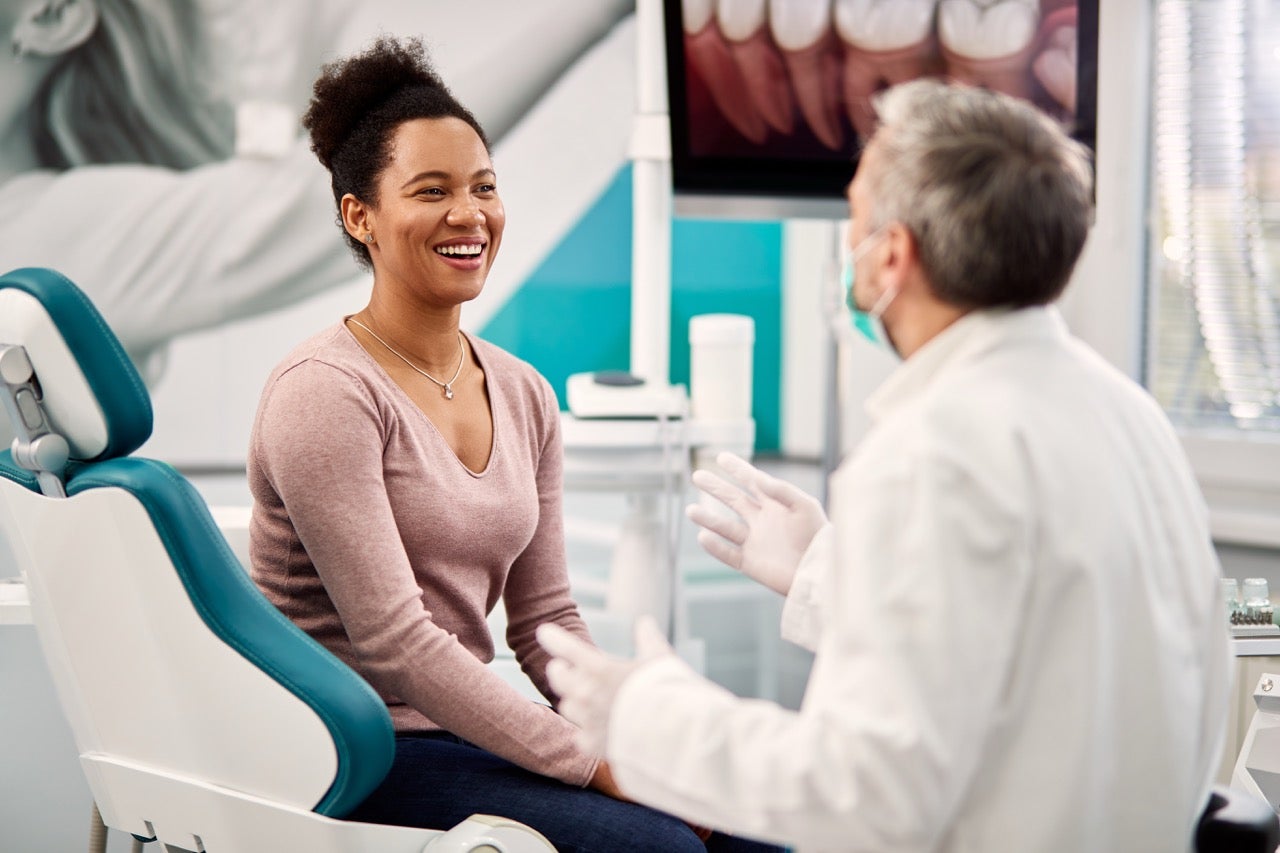Information Library
Start Reading

If you’re anxious about going to the dentist, you’re not alone. One in five Americans experiences moderate to severe dental fear. There’s even a name for this anxiety: dentophobia, or a fear of the dentist.
At Penn Dental Medicine (PDM), we understand the profound impact these feelings can have. We also believe that no one should avoid essential dental care because of fear. Our team is dedicated to helping our patients understand, manage, and ultimately overcome dental fear and anxiety through empathy, a supportive environment, education, and evidence-based approaches.
 Dental anxiety can range from mild uneasiness to severe avoidance. For some, this fear stems from a specific negative experience in the past; for others, it develops gradually over time. Regardless of the cause, the result is often the same: skipping routine checkups, delaying treatment, and increasing the risk of oral health complications.
Dental anxiety can range from mild uneasiness to severe avoidance. For some, this fear stems from a specific negative experience in the past; for others, it develops gradually over time. Regardless of the cause, the result is often the same: skipping routine checkups, delaying treatment, and increasing the risk of oral health complications.
Here are some of the most common triggers of dental fears and phobias:
Understanding where these fears come from is the first step toward managing them. At PDM, our care teams take time to identify each patient’s unique concerns—because personalized understanding leads to more compassionate care.
 While research into dental fears and phobias continues to evolve, several proven strategies can help reduce anxiety before and during dental appointments.
While research into dental fears and phobias continues to evolve, several proven strategies can help reduce anxiety before and during dental appointments.
Tell your dentist or student dentist about your fear of dentists in advance. Sharing your triggers allows your care team to make accommodations—such as creating a stop signal if you feel uncomfortable or offering relaxation aids like nitrous oxide.
A major source of dentist fear and anxiety is the unknown. Understanding what will happen during your visit can ease tension and restore a sense of control. At PDM, we encourage patients to ask questions and take an active role in their care.
Listening to music, a favorite podcast, or an audiobook can help keep your focus elsewhere. Some patients find comfort in bringing a small stress ball or something to hold during treatment.
Deep breathing, mindfulness, or gentle muscle relaxation can help calm your body’s stress response. Try inhaling slowly through your nose for a count of four, holding for a second, and exhaling gently through your mouth.
If fear of dental procedures is keeping you from getting care, therapeutic approaches—such as cognitive-behavioral therapy (CBT), hypnosis, or biofeedback—can be effective. These evidence-based methods gradually reduce anxiety by changing how your mind responds to dental situations.
Overcoming dentophobia takes time. At PDM, our student dentists are trained to work with anxious patients and are supervised by experienced faculty known for their skill and compassion. Together, they ensure a calm, supportive experience that respects your pace and comfort.
 Because PDM is a teaching clinic affiliated with the University of Pennsylvania, every appointment combines the attention of student providers with the oversight of world-class faculty. This structure ensures patients receive care rooted in both the latest research and a deep understanding of dental fear and anxiety.
Because PDM is a teaching clinic affiliated with the University of Pennsylvania, every appointment combines the attention of student providers with the oversight of world-class faculty. This structure ensures patients receive care rooted in both the latest research and a deep understanding of dental fear and anxiety.
We don’t just treat teeth—we care for the whole person. That means acknowledging fear, providing reassurance, and creating a safe, judgment-free space for all patients, including those who haven’t visited us or any dentist for years.
Avoiding the dentist because of dental anxiety and fear can have lasting effects on your oral and overall health—but it doesn’t have to be that way. With the right support, you can overcome dental fears and develop confidence in your dental care experience. Learn more about how PDM helps patients manage fear of dental procedures in this related post.
Ready to take the next step? Explore our comprehensive dental services, download our free patient guide, or schedule your appointment by completing this form or calling 215-898-8965 today (don’t forget to mention that you suffer from dental anxiety).